By Lucette Bernard
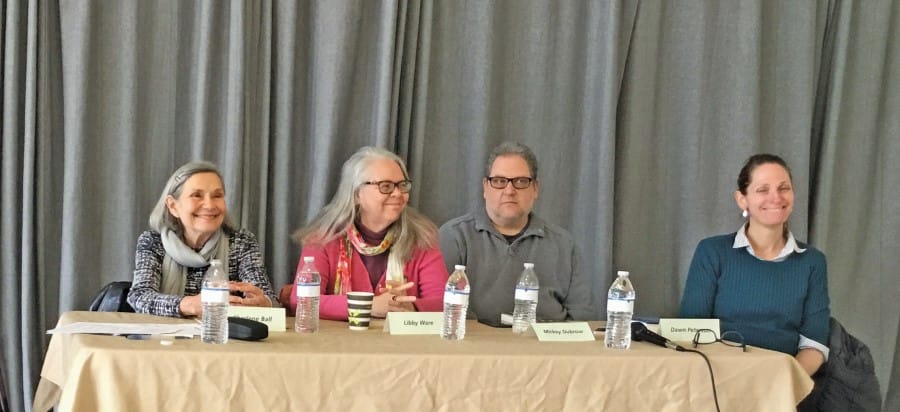
Friends and neighbors gathered for the last of three Get to Know the Authors of Southeast Atlanta, March 16, at Ormewood Church. Though attendance was smaller than the previous two gatherings, discussion was lively. Audience participants also learned a thing or two since the works of authors Charlene Ball, Mickey Debrow, Dawn Peterson, and Libby Ware all focus on historical or political topics.
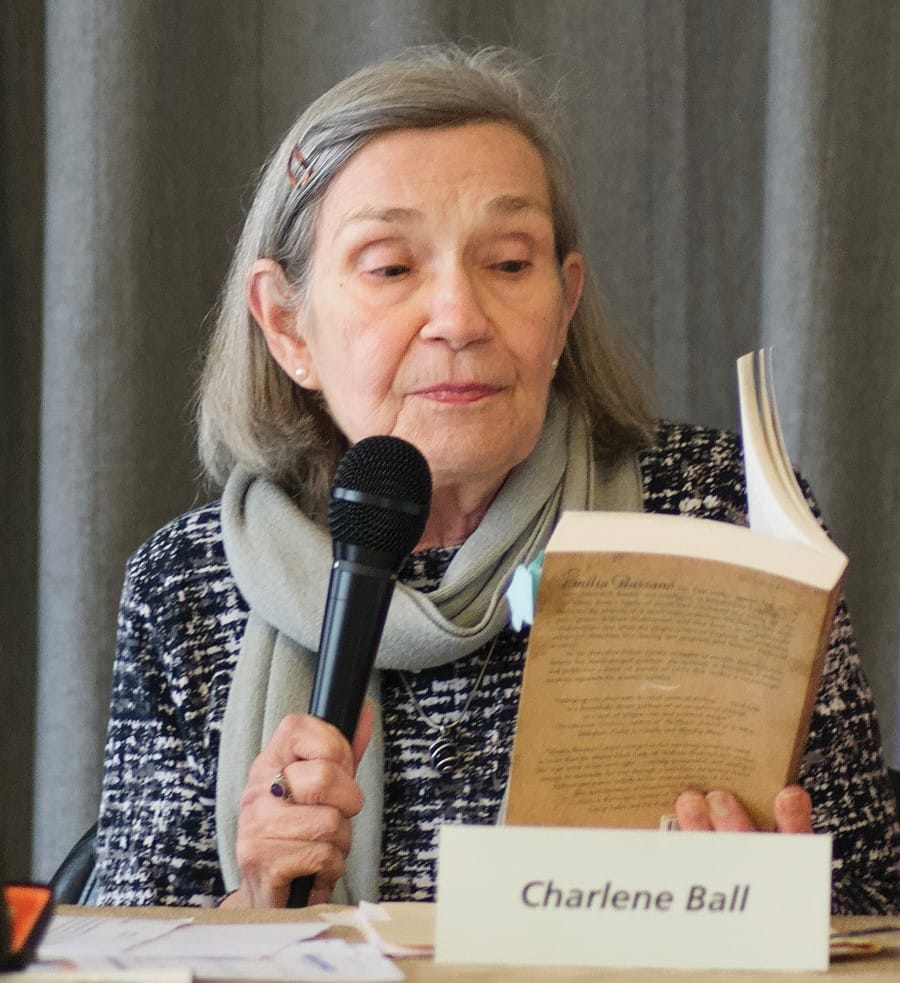
Ms. Ball’s historical fiction novel, Dark Lady, centers on the identity of the “Dark Lady” of Shakespeare’s sonnets, whom some critics believe to be Emilia Bassano Lanyer, a real-life woman and author of poetry in her own right. Ball imagines Emilia as a full-fledged character with a strong backbone, able to stand up for herself and to hold her own with the outspoken Will Shakespeare while arguing for the equal treatment of women. Discussion about the book included questions about another woman, a prostitute named Black Lucy, whom some have said might have been the real “Dark Lady” and how and why the author chose Emilia for her main character. Questions were also raised about researching a historical period and its customs for a novel set in a time far removed from the present.
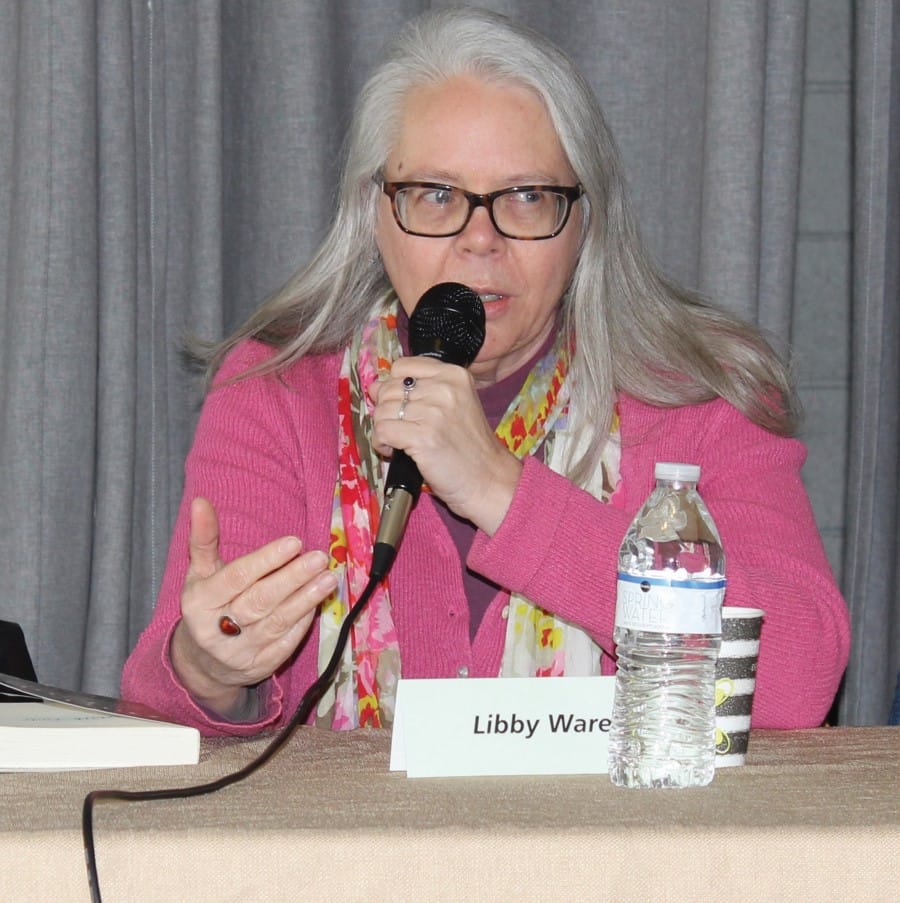
Ms. Ware’s story, Lum, is the tale of an intersex young woman in Depression era Virginia whose family is in danger of losing their farm when construction of the Blue Ridge Parkway begins. The story’s theme centers on discrimination in its many forms as its main character, Lum, experiences prejudice and bullying regarding her gender and physical appearance, and her family experiences economic prejudice when the educated “Yankee” administrators of the parkway attempt to persuade backwoods farmers to sell their highly desirable property at rock-bottom prices. In part because of her own status as someone “different” from the mainstream, Lum is drawn to the mixed-race members of her community, called Melungeons, whose skin is dark but whose features are more European and who may or may not be descendants of early Portuguese settlers. She also befriends an African American man who sells her the sideshow postcards she collects and an elderly African American healer whose knowledge of herbs sets her apart. Discussion of Ware’s novel involved questions about gender duality, among other things, and the difference between a transgender woman and an intersex person who identifies as a woman.
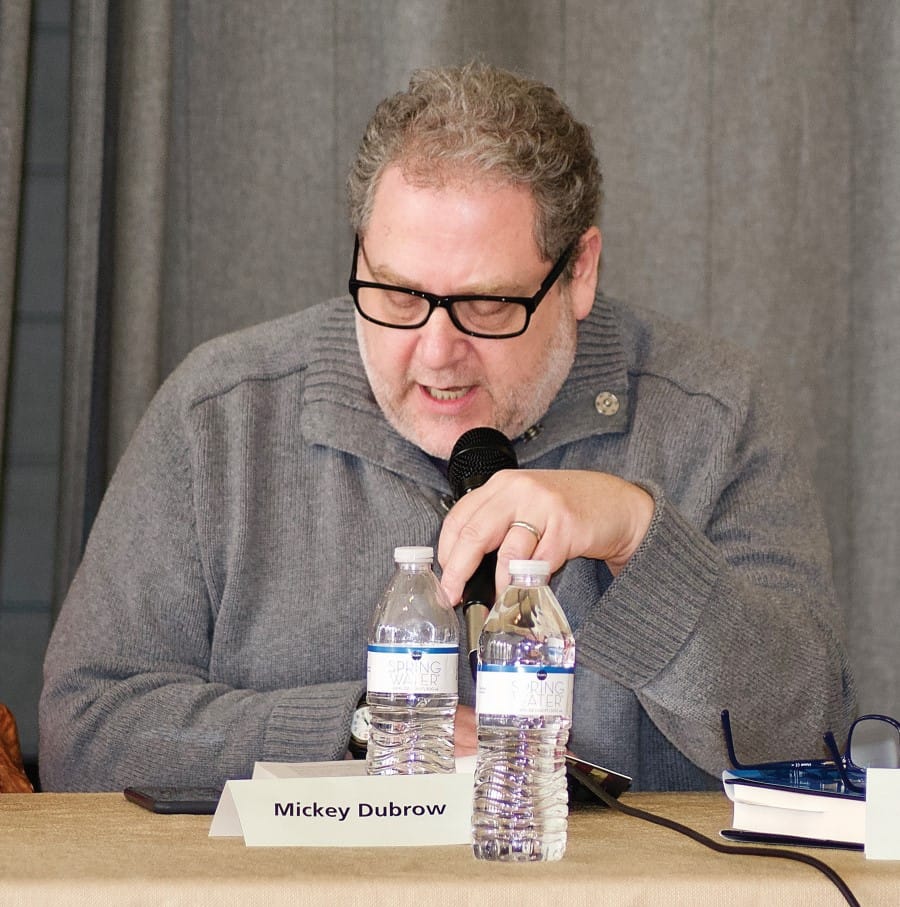
Mickey Dubrow’s book, American Judas, is a dystopian novel set in a future America where fundamentalist Christianity is the official religion and no distinctions are drawn between church and state. Inspectors may knock on your door to verify your faith, and Liberals, abortionists, and homosexuals are equated with Satan worshippers. The young couple at the center of the novel, one of whom is Jewish and one of whom is Catholic, attempt to escape the oppression of life inside a theocracy while readers make their way through a clever blend of political satire, compelling drama, and occasional glimpses perhaps of a foreseeable future. Audience members had their interest peaked when Dubrow read a chapter describing a re-education camp that eerily resembled the Jonestown settlement in 1970s Guyana where nearly 1,000 townspeople died from a mass suicide. Several listeners were interested to know if the book’s author believes that a fate such as the one described in his novel is possible here in the U.S., given the current divisions in our country. Dubrow agreed that certain aspects of the book might be possible but was somewhat non-committal on the question in general.
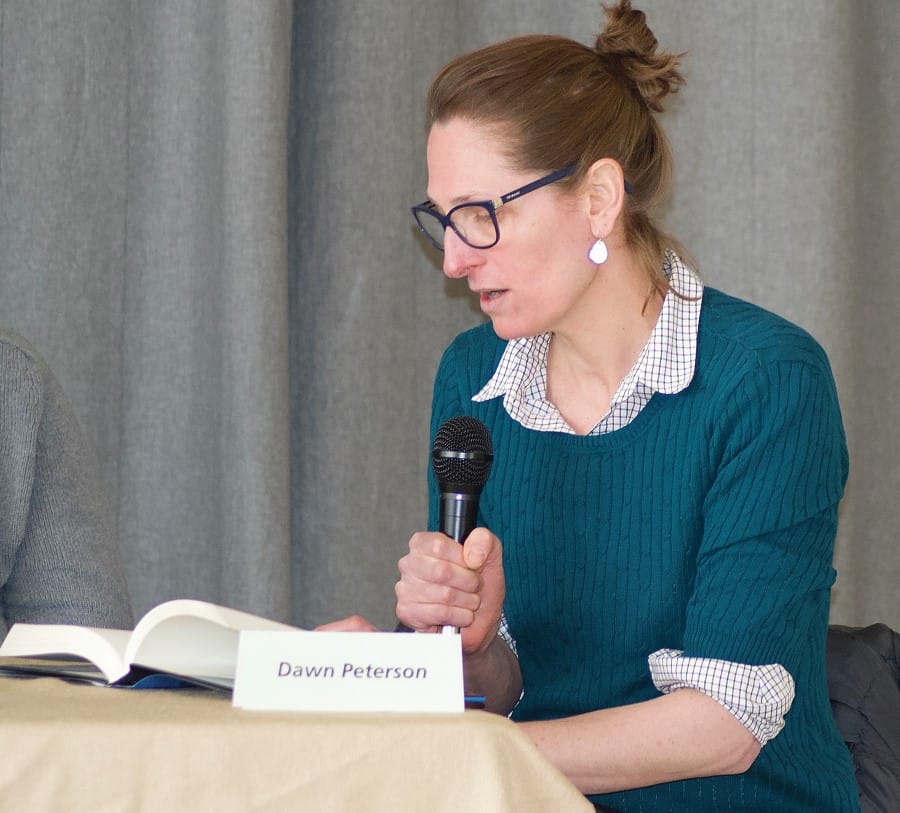
Dawn Peterson’s book, Indians in the Family, is a scholarly work of non-fiction focusing on the forgotten history of adoption of Native American children by white Europeans in the 18th and early 19th centuries. Discussion centered on racism and European notions of white supremacy. Many listeners were surprised to learn that the “founding fathers” glorified in our textbooks and whom we have been taught to admire were racially motivated in their decisions and policies. Questions arose about the telling of history — how much of what we are taught is true and how much of the true story is left out? And how much of a historian’s opinion, over time, is eventually regarded as truth?
The reading series was the brainchild of two local residents who, recognizing the enormous talents of writers in the neighborhood and wanting to support the Friends of the East Atlanta Library, thought it would be interesting to gather them together to share their works. A committee of eager neighbors was organized with the Friends as supporter. Ormewood Church generously offered its fellowship hall as a venue, and Jenelle Holmes and Mary McEneaney volunteered as panel facilitators. A total of ten writers read and shared their work with their neighbors while upwards of one hundred members of the Porch Press neighborhoods – and beyond – attended the series.
Many attendees have already approached organizers about a second group of readings. Who wants to organize the next series and bring to local attention additional undiscovered writers?
Note: These gatherings were presented in partnership with the Friends of the East Atlanta Library, and were free and open to the public.

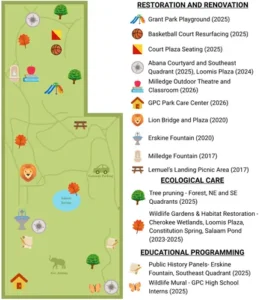
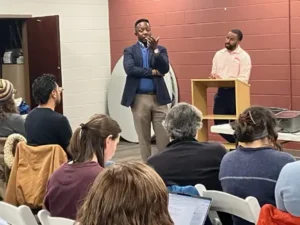
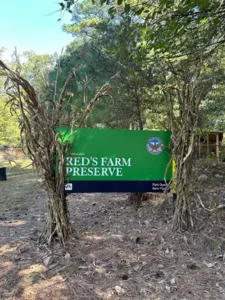
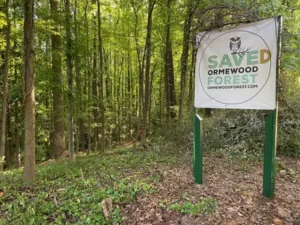

Comments are closed.